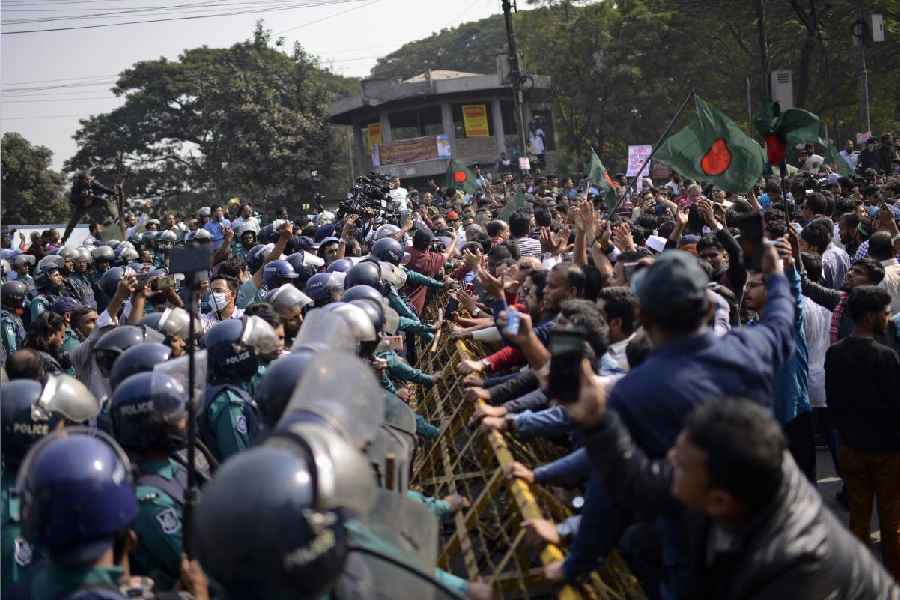Tens of thousands of people are staring at loss of livelihood because of the Bangladesh crisis, traders in central Calcutta have warned.
Worst hit are the small players who have taken steep loans or mortgaged assets to lease an establishment in central Calcutta, they said.
At a meeting of the Free School Street Traders Association, several members feared that the ongoing emergency in the neighbouring country would force many businessman to shut shop for good.
There are around 5,000 rooms in hotels and guest houses on Free School Street, Marquis Street and adjoining areas. Now, the occupancy rate is less than five per cent, said hoteliers.
A man who runs a guest house on Chowringhee Lane broke down at the meeting. He said he had spent ₹30 lakh to lease the property and had to pay a monthly rent of ₹1.17 lakh. Without Bangladeshi boarders, he said he was pushed to the brink of penury.
His breakdown mirrored the mood of many.
“The bigger hotels might just withstand the slump for some time. But there are many traders who have leased a small guest house with just three or four rooms. They have mortgaged wife’s jewellery, sold land or taken loans at steep interest rates. They cannot sustain mounting losses any further,” said Hyder Ali Khan, general-secretary of the association.
It has over 150 members — hoteliers, currency exchangers, travel operators, restaurateurs and other traders.
Another traders’ body, the Marquis Street Free School Street Welfare Society, convened a similar meeting on Saturday. The participants had sought steps from the government to resolve the visa crisis and ensure that “people-to-people ties” between the two neighbours continued like before.
Khan said the association and other similar trade bodies will jointly write to the central and the state governments, urging them to treat the matter with “utmost seriousness” because it “involves the livelihoods” of so many people.
Anil Punjabi, national committee member, Travel Agents Federation of India, representing the eastern region, also attended the meet.
“I have proposed a signature campaign each on either side of the border. Trade on both sides has been hit hard. Traders should come together to find a solution. The governments need to resolve the visa issue,” said Punjabi.
Fewer flights now operate between Calcutta and Dhaka and bus operators, too, have cut down their services.
A transport operator who attended the meet said he has not been able to pay full salary to his staff on either side of the border because of the sharp plunge in the number of passengers.
Fuad Halim, doctor, CPM leader and a resident of Kyd Street, addressed the meeting.
“India’s export to Bangladesh stood at $13.8 billion in 2022. But it is not a one-way trade. The cotton grown in Maharashtra and Andhra Pradesh is processed in the mills in Maharashtra and Gujarat. It is converted into cloth and go to Bangladesh from Calcutta,” he said.
“That cloth is used in the stitching industry in Bangladesh and the finished product is sold globally. The money that flows into Bangladesh is also spent in India,” he added.

